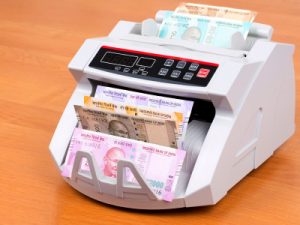Need to Deposit Cash? Here Are Some New Rules to Know!
Are you planning to deposit cash into your bank account or undertake cash transactions any time soon? Then, here are some new rules you need to know.
What are the new rules?
Firstly, it is now mandatory to provide your PAN as well as Aadhaar details in case you wish to deposit cash of over Rs. 20 lakhs per annum. Previously, account holders could deposit Rs. 50,000 in cash per day without having to provide PAN or Aadhaar details. Additionally, there was no predefined annual limit as well.
However, in May 2022, the CTBT or Central Board of Direct Taxes came up with a new set of rules and regulations.
The declaration as per the notice issued by CTBT is as follows –
“Every personal shall, at the time of entering into a transaction specified in column (2) of the table below, quote his permanent account number or Aadhaar number, as the case may be, in documents pertaining to such transaction, and every person specified in column (3) of the said Table, who receives such document, shall ensure that the said number has been duly quoted and authenticated.”
What is the reasoning behind these new rules?

The main reason for these changes is to cut down on illegal transactions. Additionally, providing PAN and Aadhaar details will ensure that there’s a paper trail to track such activities preventing unaccounted cash transactions of every kind.
Before these new rules were enforced, an official from the bank would have to ensure that the individual who was undertaking these transactions had a PAN number. But now, PAN details will have to be stored in the bank’s records and should be communicated to the Income Tax Department.
It is important to note that these rules are also applicable for transactions at post offices and co-operative societies.
The penalty for not following these rules is quite hefty. Offenders will be charged up to 100% of the amount paid or received if they pay or even receive cash beyond the stipulated limit.
Does this rule cover other cash transactions?

Yes, it does. This rule is not limited to cash deposits at banks or post offices. The following type of transactions will come under the purview of this rule –
-
- Cash transactions above Rs. 2 lakh are prohibited in every circumstance. For example, if you wish to buy a gold necklace that is worth Rs. 2.2 lakhs, you will have to pay using your Credit/Debit card, DD, cheque, etc.
- Cash gifts of over Rs. 2 lakh cannot be accepted (or gifted) in a single day even from close relatives
- If you have active health insurance, then you must ensure that the payments are not made in cash. Doing so will make you ineligible for a Sec 80D deduction. The premium amount will have to be made through digital channels or cheque
- If you need a cash loan from your family or friends, then the amount cannot exceed Rs.20,000. This is also applicable for repayments where any amount exceeding Rs. 20,000 should be done digitally. On a side note, if you need a personal loan, why not get one easily from Money View? It is safe, secure, and easy to avail
- If you are self-employed, you will not be allowed to claim expenditures above Rs. 10,000 if it is paid in a single day to an individual. However, if this payment is made to a transporter, then the amount cannot exceed Rs. 35,000
- When it comes to property transactions, the maximum cash transactions allowed is Rs. 20,000 even in case of advances
In Conclusion
According to a recent report, 40% of all transactions in India are digital and this number is only expected to grow. The government is also doing its part by encouraging more citizens to switch over to digital payments as it is safe, convenient, and prevents a number of illegal financial practices.
The new rules regarding cash deposits is just another step taken to prevent financial frauds. If you have not already, it is time to jump onto the digital transaction bandwagon such as using debit or credit cards, UPI transactions, or digital banking facilities to name a few.
